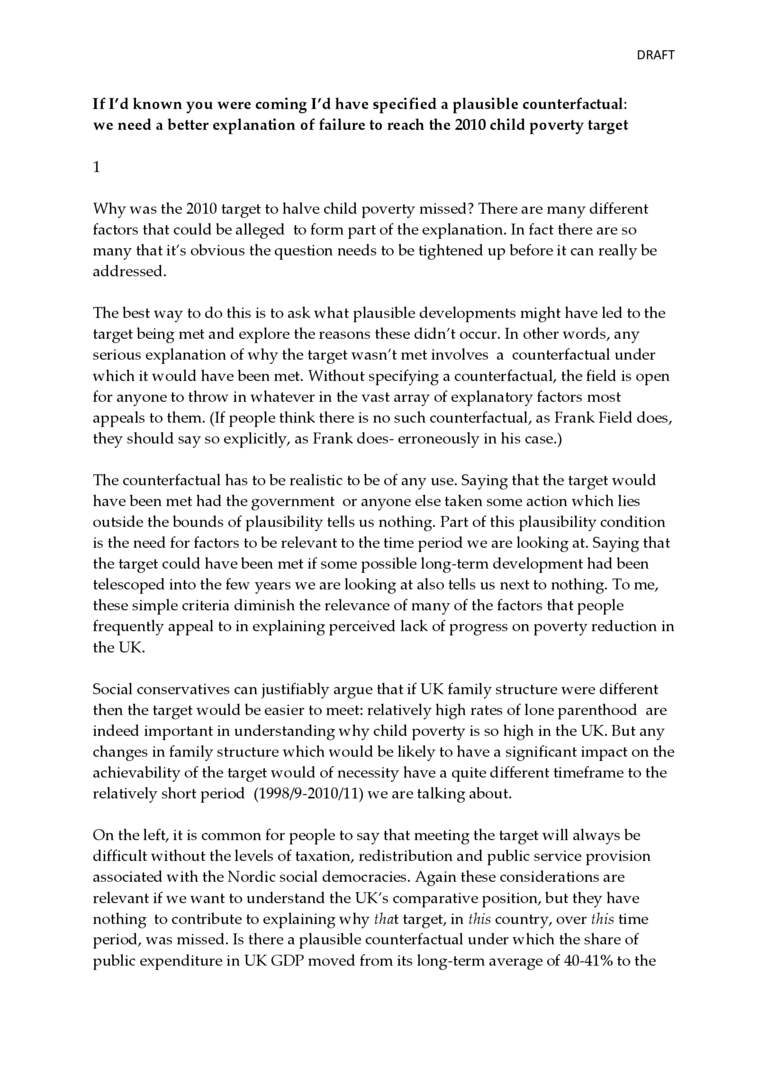If I'd known you were coming I'd have specified a plausible counterfactual

The failure to meet the 2010 child poverty target is one of the less surprising of our recent disappointments, but we should still be asking what explains that failure, which in turn requires asking what counts as an explanation in this area. The attached PDF is a hasty response to what seems to be a developing orthodoxy, that the labour market route to child poverty reduction has been either neglected or ineffective in the UK. I think that's wrong: the assessment of overall performance is excessively influenced by the impacts of the recession, and we should be looking at developments pre-recession separately. These suggest employment was playing a more important role than recent reports suggest: accounting for between 27% to 43% of child poverty reduction 1998/9-2008/9 compared to the 13% for the entire period 1998/9-2010/11 reported by government.
All of which is of course subject to revision in the light of criticism and new information. It's a draft, as it says on the header.
Note 18 June 2012 One of the symptoms of over-rapid drafting in the PDF article is that it doesn't make a clear distinction between the employment route to poverty reduction and the subordinate aspect of reducing family or household level worklessness (i.e. the situation where no adult in family/household is working). The article suggests that we shouldn't assume that there were major unrealised gains to be made in terms of the latter, but this was not meant to imply that the employment route had been exhausted over the period 1998/9-2008/9. Indeed it goes on to flag up two other aspects of the employment route where arguably more could have been achieved: second earners in couple families and less reliance on jobs with short working hours.